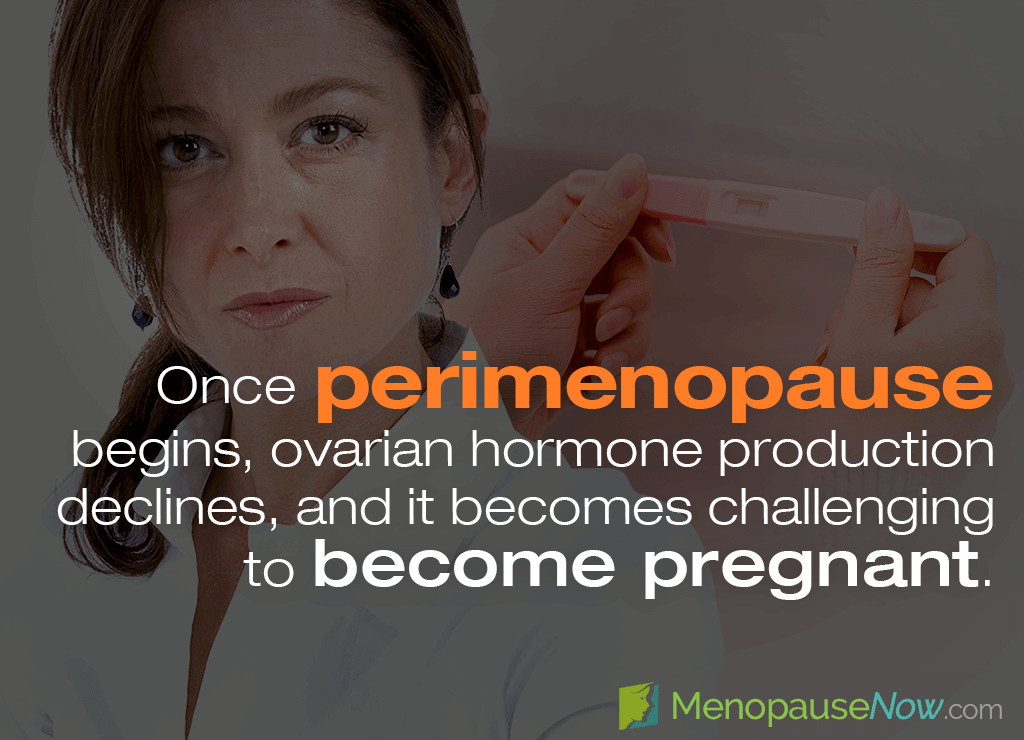Early menopause is when a woman hits her menopause date between the ages of 40 and 45. It is a condition that affects around 5 percent of women. For some, this can be a significant problem as they suffer through perimenopause symptoms and irregular periods while still trying to conceive. Read on to learn more about infertility and early menopause.
Leading into Infertile Years
Throughout women's reproductive years, the ovaries are responsible for producing the reproductive hormones necessary for healthy menstrual cycles, specifically estrogen and progesterone.
With age, ovarian hormone production declines, and estrogen and progesterone levels fluctuate drastically as women enter the perimenopausal transition.
Once perimenopause begins, it becomes challenging to become pregnant. Menstrual cycles are irregular, and your ovaries release fewer eggs, making it difficult to time ovulation with conception efforts.
Accordingly, because age is the most critical factor involved in getting pregnant with one's own eggs, women entering perimenopause (the transitional phase leading up to menopause) early should promptly research alternative options to maximize their chances of conceiving.
What Are My Options?
There are a variety of options for maximizing your chances to get pregnant during early perimenopause. Just because you are going through menopause does not mean that you can't have children if you want them.
If a woman is in perimenopause, she can try conceiving naturally, but most likely will need IVF or FSH.
If a woman has already reached early menopause, the only option she has is IVF with younger donor eggs.
A couple medical options have come to light as viable options for those worried about early menopause and fertility, including, but not limited to:
In vitro Fertilization (IVF). IVF is a process that involves placing a fertilized egg directly into the uterus. The success rate of IVF for women using their own eggs is relatively high up until the age of 35. However, as soon as they near and pass 40, the likelihood of having a healthy baby through IVF with their own eggs decreases as more chromosomal abnormalities occur in wake of their increasing age. Success rates with donor eggs remain relatively stable no matter the mother's age.
Ovarian stimulation. It consists of using oral pills or hormone injections to signal the ovaries to mature the eggs. Ovarian stimulation is often used before assisted reproductive technologies (ARTs), like IVF or intrauterine insemination (IUI), to increase the rates of fertilization. The chances of success depend on a woman's age and the state of her ovarian reserve.
More Information
Without a doubt, issues concerning early menopause and fertility can be difficult to deal with, but fortunately there are a range of options. Click on the following link to read more about early menopause treatments.
Sources
- Mayo Clinic. (2016). Women's Wellness: 5 Things To Know About Early Menopause. Retrieved February 14, 2019, from https://newsnetwork.mayoclinic.org/discussion/womens-wellness-5-things-you-need-to-know-about-early-menopause/
- Office on Women's Health. (2017). Early or premature menopause. Retrieved February 14, 2019, from https://www.womenshealth.gov/menopause/early-or-premature-menopause
- Penn Medicine. (2018). IVF by the Numbers. Retrieved February 14, 2019, from https://www.pennmedicine.org/updates/blogs/fertility-blog/2018/march/ivf-by-the-numbers
- Society for Endocrinology. (2018). Follicle stimulating hormone. Retrieved February 14, 2019, from http://www.yourhormones.info/hormones/follicle-stimulating-hormone/
- Yale Medicine. (n.d.). Ovulation Induction and Intrauterine Insemination. Retrieved February 14, 2019, from https://www.yalemedicine.org/conditions/ovulation-induction-intrauterine-insemination/



